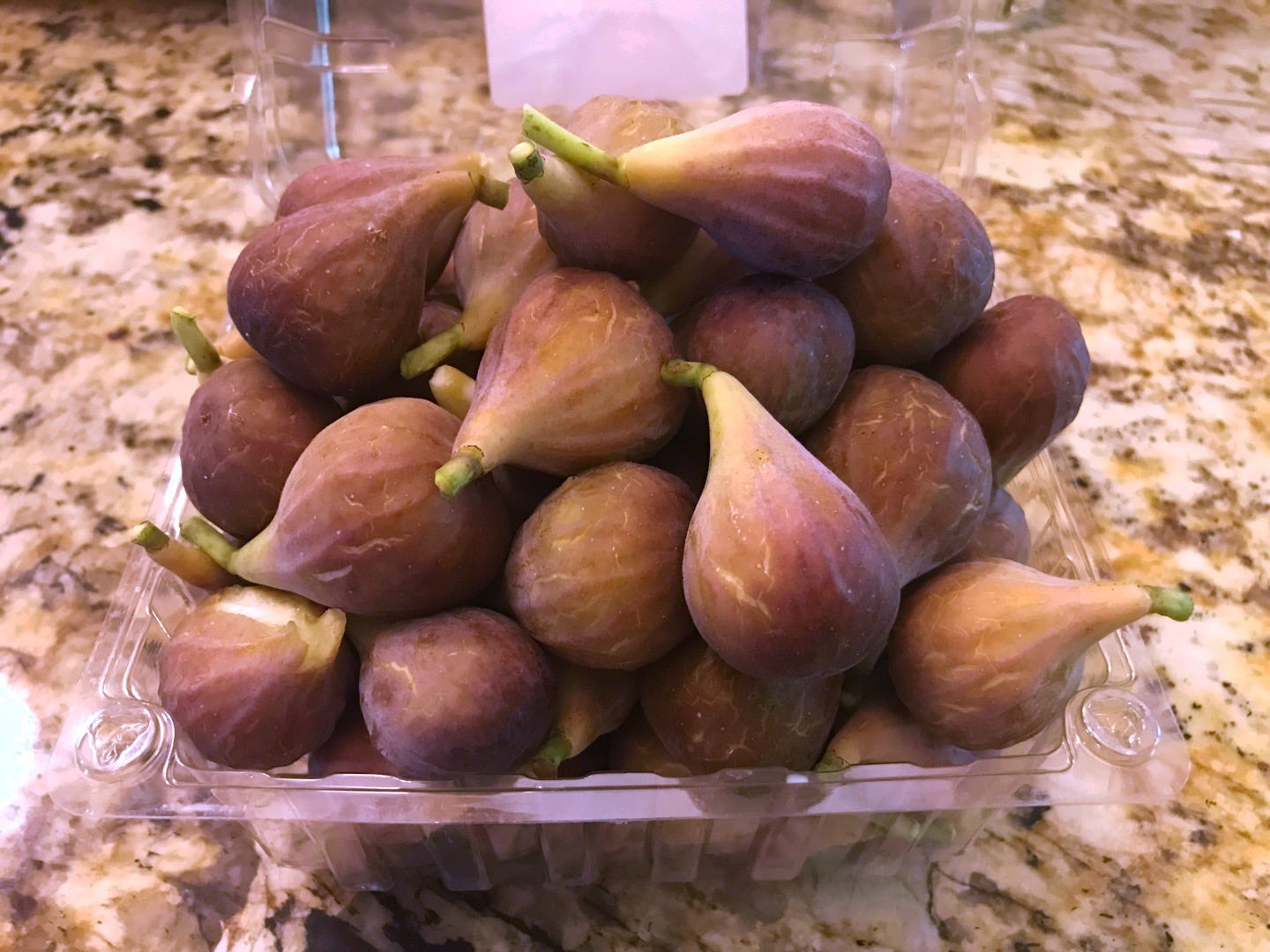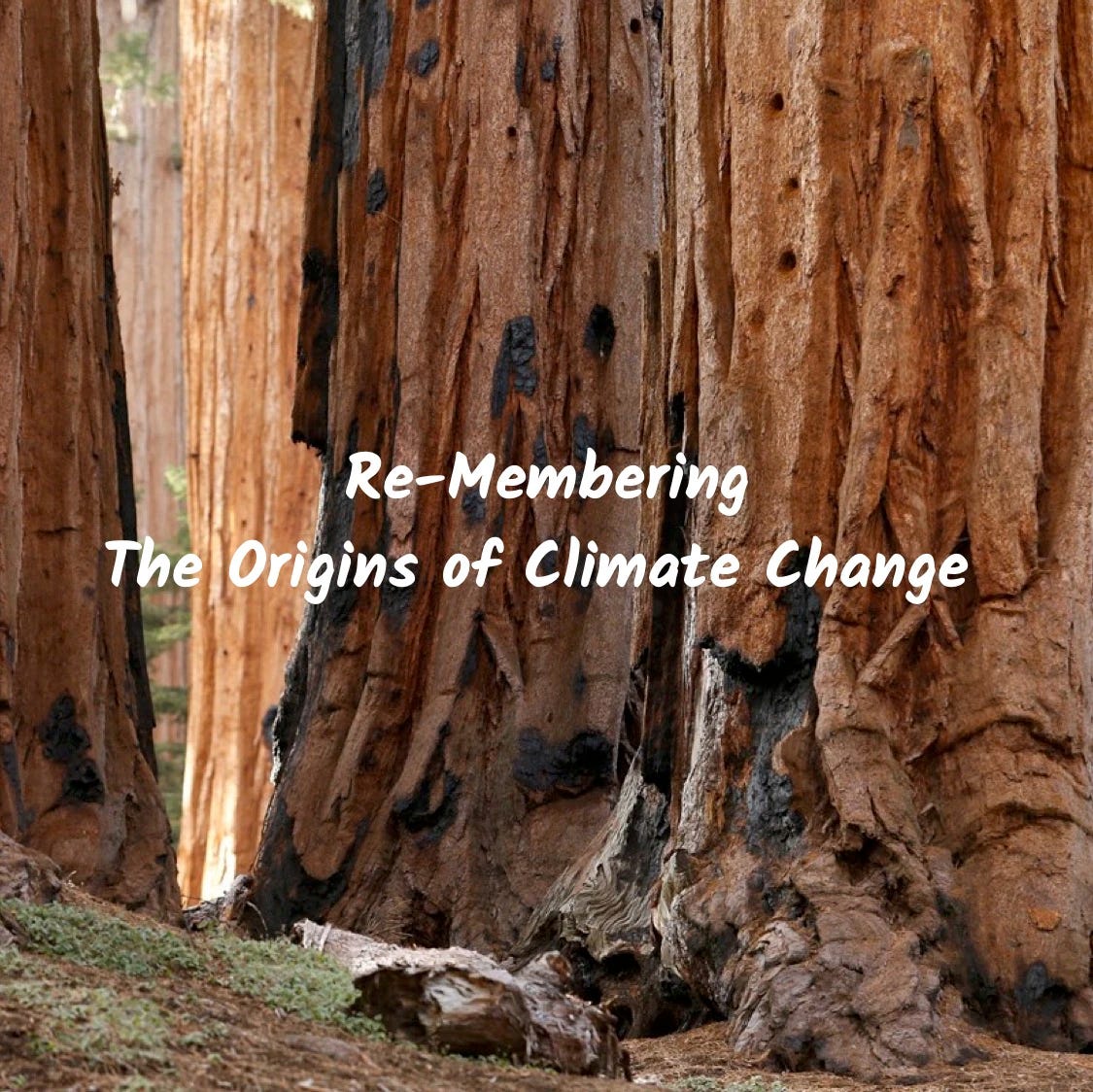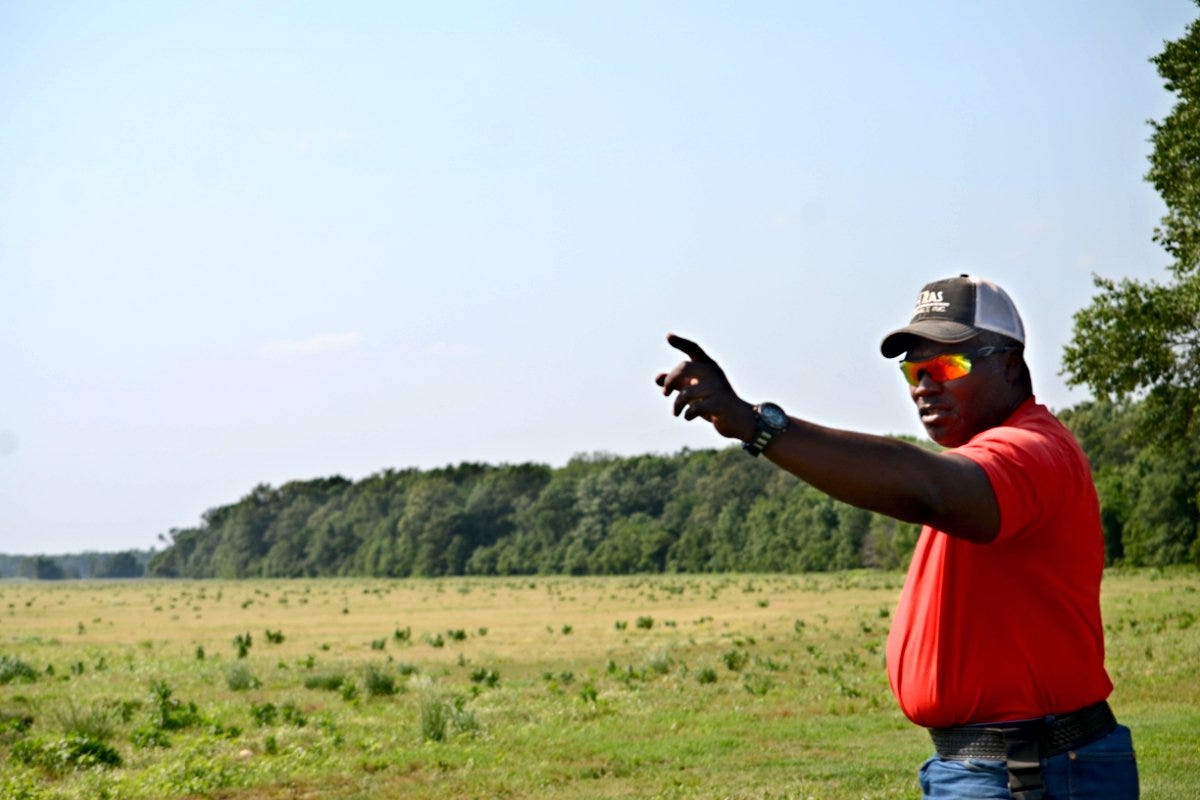The RēMind, No. 030: Seeding Understanding
Updates from Rē / Figs / Fall Into Balance 2022 / Translating Food Sovereignty / Agroecology and Regenerative Agriculture / Solastalgia / Migration and Belonging / Mushrooms / Systemic Racism
In this week’s newsletter, we explore a variety of topics. From uncovering earth’s underground metabolism to racial justice campaigns, we sow seeds of understanding ecological and cultural systems alike.
Last week, intern Anthony DiPreta and co-director Dr. Felix Bivens rooted cuttings from our fig tree to share with others in our community. The original cutting that started our fig tree (pictured above) came from Dr. Biven’s grandparents’ home in Arkansas and can be traced back more than three generations.
With this week's heavy rains, our Tennessee fig tree ripened early and we were happy to donate about five lbs of fresh figs to our local food bank, the Hands of Mercy food bank in Fayetteville, TN.
Understanding, much like fig trees, can root and fruit. It is our humble hope for this newsletter to serve as biweekly fodder to consider the communities and complexities around us.
What have you been reading lately? Write to us and let us know!
All our best,
The Regenerative School Team
Offerings from Rē:
Fall Into Balance 2022 Retreat
October 7-9, 2022 in Fayetteville, TN
Mark your calendars! We are happy to officially launch another restorative retreat offering for the upcoming fall season.
Thana Nu of Nourish Me Wellness, Caitlin Smith of Within Wellness, and Ashlei Laing of Rē : The Regenerative school will meet again at the farm to hold space and guide us into balance.
This retreat will be a fresh experience for all those interested in Ayurveda, yoga, soulful nourishment, self-care, and rēconnection to mind, body, and nature. Consider our invitation and lean into a beautiful practice for you. More details to come!
ALL ARE WELCOME! No experience needed! Only open minds!
Sign up at here AND join our facebook group here!
RēMembering the Origins of Climate Change
According to educator and theologian Parker Palmer, "the opposite of to remember isn't to forget, it's to dis-member." Course facilitator Sara Jolena Walcott applies this framework to our fragmented, short-term understanding of climate change. In this new, three-part course, participants will trace the roots of climate change back 500 years to its roots in colonialism, racism, and theology. Along the way participants in the course will also delve into their own family histories to make sense of the deep history of how we have arrived at today's climate crisis and how we can instead choose to build a more regenerative future. Click here to learn more about this upcoming course! Watch this space for dates and more details!
RēRead
All of our book recommendations have a new home on our website! Too access all titles we have mentioned in our newsletters, visit here.
Translating Food Sovereignty: Cultivating Justice in an Age of Transnational Governance
In its current state, the global food system is socially and ecologically unsustainable: nearly two billion people are food insecure, and food systems are the number one contributor to climate change. While agro-industrial production is promoted as the solution to these problems, growing global "food sovereignty" movements are challenging this model by demanding local and democratic control over food systems. Matthew Canfield’s new book, Translating Food Sovereignty, accompanies activists based in the Pacific Northwest of the United States as they mobilize the claim of food sovereignty across local, regional, and global arenas of governance. This nuanced, deeply engaged ethnography illustrates how food sovereignty activists are cultivating new forms of transnational governance from the ground up. Click here to learn more about the book.
Agroecology and Regenerative Agriculture: Sustainable Solutions for Hunger, Poverty, and Climate Change
A synthesis of more than three decades of interdisciplinary research and practice, Dr. Vandana Shiva’s new book provides evidence-based solutions to some of the world’s most pressing crises in global ecology, agriculture and public health. Dr. Shiva is a long time friend and collaborator of Rē. Her work and wisdom largely inspires our ethos. Our tours to India always include a stop at Navdanya, her organization which promotes agroecology, seed freedom, and a vision of Earth Democracy that seeks justice for the Earth and all living beings. Dr. Shiva’s new book serves as a guidebook for agriculture scientists, policy makers, environmentalists and every individual who cares about their own health as well as the vitality of the planet. To learn more about our tours to India, click here. To read more about Dr. Shiva’s new book, click here.
RēNews

Foraging for Edible Plants Helped Me Connect With My Roots
By Zoe Yang for Grist | August 02, 2022, about 10 minutes
We teach children to identify the color blue, and that the sky is blue. But somewhere between my ancestors and me, we stopped teaching children to identify a plant by name… to know when it grows, what it smells like, and which parts of it are medicine, poison, or food. I wondered, even if I foraged for the rest of my life, if I could ever regain all the knowledge that was once common sense to my ancestors, and whether it’s been irretrievably lost — an internal almanac unwritten.
To read a beautiful piece about how foraging inspired a new way to think about migration and belonging, click here.
The Era of Climate Change Has Created a New Emotion
By Madeline Ostrander for The Atlantic | July 23, 2022 about 8 minutes
“Does it matter if we name or even notice this kind of angst?” writes author Madeline Ostrander in an excerpt of her forthcoming book At Home on an Unruly Planet: Finding Refuge on a Changed Earth.
In moments of collective distress, people have tried to name the pain that comes from the disruption of home: a complex set of feelings that includes longing, love, grief, existential angst, and even a lurking sense of dread. Loss of home can evoke the pain of dispossession, profound cultural and personal disorientation, and righteous anger, all of which can haunt a society for generations.
Ostrander muses on root shock, solastalgia, sumbiosity and other neologisms developed in response to radical (environmental) change, when it feels like everything is being remade and altered. To read this fascinating piece, click here.
Unearthing the Secret Superpowers of Fungus
By Somini Sengupta for The New York Times | July 27, 2022 about 10 minutes
By one estimate, 5 billion tons of carbon flow from plants to mycorrhizal fungi annually. Without help from the fungi, that carbon would likely stay in the atmosphere as carbon dioxide, the powerful greenhouse gas that is heating the planet and fueling dangerous weather. “Keeping this fungal network protected is paramount as we face climate change,” Dr. Kiers said. In addition, the biodiversity of underground fungi is a huge factor in soil health, which is crucial to the world’s ability to feed itself as the planet warms.
To read about the scientists building a global atlas of underground fungal networks, click here.
Black Farmers in Arkansas Still Seek Justice a Century After the Elaine Massacre
By Wesley Brown for Civil Eats | July 27, 2022, about 15 minutes
Eugene “Butch” Flenaugh, Jr. came back home to Phillips County, Arkansas about five years ago to care for the family’s farm in the Mississippi River Delta bottomland. Today, when he looks out over the 400-plus acres that his family owns, he’s often nostalgic about the stories his father told him when the entire Delta River flatland was tilled and owned by Black farmers and sharecroppers as far as the eye could see… The legacy of the Elaine Massacre is still “thick in the air.”
The long shadow of systemic racism continues to harm generations of Black agricultural communities. Click here to read about the Black families that are trying to seek Justice for their ancestors.
Some other interesting articles we caught up on this week:
A Win for Abortion Rights in Kansas
By Peter Slevin for The New Yorker | August 3, 2022, about 5 minutesThe Sinkhole That Swallowed a Mexican Farm
By Allison Keeley for The New Yorker | August 3, 2022, about 20 minutesHere’s What’s in the Senate’s $369 Billion for Climate and Energy
By Julia Kane & Emily Pontecorvo for Grist | July 29, 2022, about 10 minutesExtreme Weather is Soaking New York City. Community Gardens Can Help. By Winnie Hu for The New York Times | July 27, 2022, about 8 minutes
The Search for the Source of Plastic Pollution
By Samantha Wohlfeil for Grist | July 21, 2022, about 15 minutesClimate Change Shifting How Plants Evolve. Seed Banks Will Adapt, Too
By Lauren Leffer for Earther | July 01, 2022, about 10 minutesCan Small-Scale Farming Feed the World?
By Our Changing Climate | February 7, 2022, about 7 minutes
As always, we at Rē are grateful for your attention and support. If you liked this newsletter, consider donating at https://regenerativeschool.org/redonate/
Thank you and see you soon!













